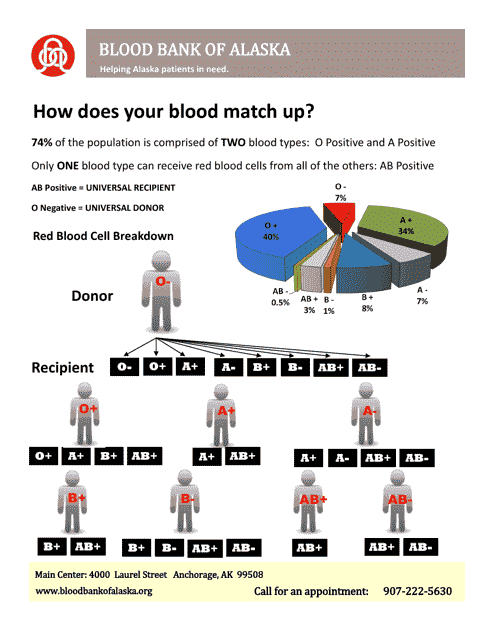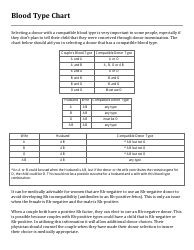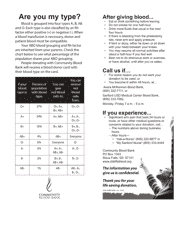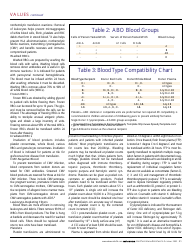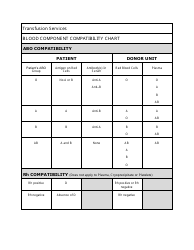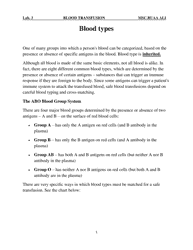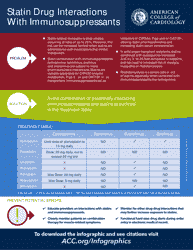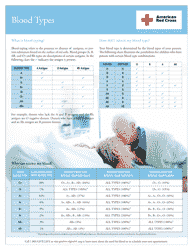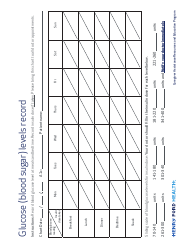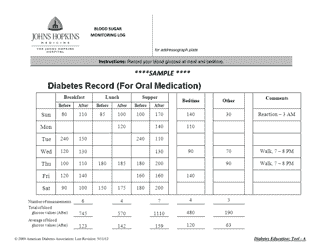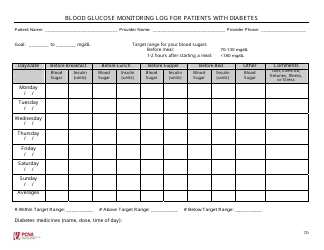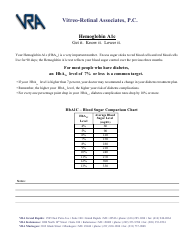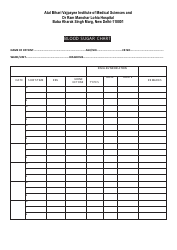Blood Type Compatibility Chart
A blood type compatibility chart is used to determine which blood types are compatible for blood transfusions. It helps medical professionals match compatible blood types to ensure safe and successful transfusions.
The blood type compatibility chart is typically not filed by any specific entity or individual. It is a widely recognized system for determining blood compatibility used by medical professionals and blood banks.
FAQ
Q: What is a blood type compatibility chart?
A: A blood type compatibility chart is a tool used to determine the compatibility of blood types for blood transfusions.
Q: What are the different blood types?
A: The different blood types are A, B, AB, and O.
Q: What are the Rh factors?
A: The Rh factor refers to the presence or absence of the Rh antigen on red blood cells. It can be positive (+) or negative (-).
Q: Which blood types are compatible with each other?
A: In general, individuals with blood type A can receive blood from types A and O, those with blood type B can receive blood from types B and O, those with blood type AB can receive blood from all types, and those with blood type O can only receive blood from type O.
Q: What are the universal blood donors and recipients?
A: Individuals with blood type O negative (O-) are considered universal donors, as their blood can be transfused to any blood type. Individuals with blood type AB positive (AB+) are considered universal recipients, as they can receive blood from any blood type.
Q: What happens if incompatible blood types are mixed?
A: If incompatible blood types are mixed during a transfusion, it can lead to a potentially life-threatening reaction called a transfusion reaction.
Q: How is blood type compatibility determined?
A: Blood type compatibility is determined by testing the blood of the donor and recipient for ABO blood type and Rh factor. Additional tests can be done to check for compatibility in certain situations.
Q: Can a person's blood type change?
A: A person's blood type does not typically change over time, unless they undergo a bone marrow or stem cell transplant.
Q: Is blood type compatibility important for organ transplants?
A: Yes, blood type compatibility is important for organ transplants. The donor and recipient should have compatible blood types to minimize the risk of organ rejection.
